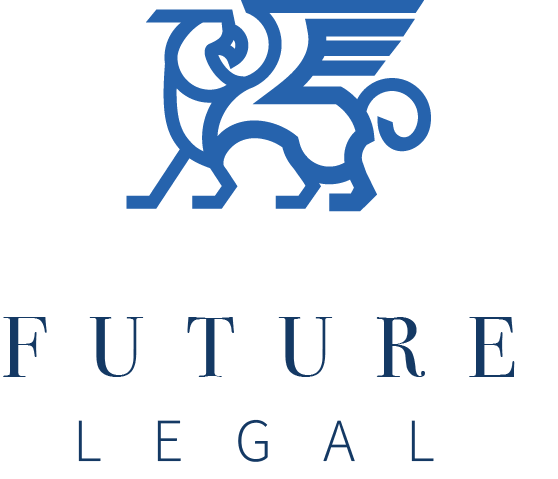Trusts

Types of trusts we offer:
- Discretionary Trust.
- Nil Rate Band Discretionary Trust.
- Flexible Life Interest Trust.
- Life Interest in Property or Right to Reside.
- Protective Property Trust.
- Business relief Trust.
- Discretionary Trust Deed.

Bloodline Trust
What is a Bloodline Trust?
Bloodline trusts, also known as discretionary trusts, family protection trusts and wealth protection trusts, help to ensure wealth and assets remain within the family unit. They are useful for ensuring capital is not at risk of being included in the divorce settlements of family members, or at risk of being absorbed by creditors should a family member be declared bankrupt.
Why Should I Set Up A Bloodline Trust?
If assets and wealth are protected in a bloodline trust, they remain within the family unit. Without a bloodline trust, assets are vulnerable to:
The benefits of the bloodline trusts are as follows:
- To protect your beneficiaries’ inheritance from marriage/remarriage
- To protect your beneficiaries’ inheritance from dilution if they are or become divorced
- To protect your beneficiaries’ inheritance from creditors if they suffer financial hardship
- To ensure that a ‘bloodline’ inheritance is maintained for several generations, avoiding son or daughter-in-laws from inheriting
- To ensure that beneficiaries receiving state benefits would not be affected by inheritance
Business Trust Wills
The main reasons for having a Business Will
There are numerous reasons why you should make a Will, for example the appointment of executors, trustees and guardians and making sure that the right people inherit your estate and at an age when is right for them and their circumstances.
However, as a business owner, there are several reasons why a simple Will may not be efficient or sufficient: a more comprehensive Business Will might be required. Several reasons for this include:
- For certain businesses, the business must cease trading on death. This could cause a catastrophic effect on the value of the business meaning that the beneficiary or beneficiaries you wish to pass the business onto may receive little or no inheritance.
- You might wish to appoint different people to administer your business to those for your personal estate;
- For inheritance tax efficiency
Businesses and Inheritance Tax
Although Inheritance Tax may be avoided if you leave your business assets or shareholding, agricultural assets or AIM-listed share portfolio to a spouse or Civil Partner, if these are sold during his or her lifetime or if this tax relief is abolished between 1st and 2nd deaths, the proceeds become taxable. Your children or other beneficiaries may be obliged to hand over 40% of their inheritance to the government.
By gifting your business/agricultural assets in your Will into a Business Trust the surviving spouse and children can make use of the assets during their lifetime and are not subject to Inheritance Tax on the survivor’s eventual death. The trust can be used in conjunction with Cross option Agreement and other tax or estate planning trusts in your Will.
Flexible List Interest Trust
A Life Interest Trust arises when a beneficiary is left a lifetime interest in relation to assets contained in an estate. This normally means that the beneficiary is entitled to receive income from the trust, for life, but they are not entitled to receive capital. The beneficiary with the interest is called the ‘Life Tenant’. The Life Tenant may also be identified as the ‘Principal Beneficiary’. After the Life Tenant’s death the assets in the trust will pass to other beneficiaries identified in the trust deed.
A Flexible Life Interest Trust provide the trustees with the power to pay trust income, and often trust capital to the Life Tenant. The trust may provide that the Life Tenant can live in a property owned by the trust rent free and include powers for the trustees to sell any such property and buy an alternative property for the Life Tenant to live in.
Where the life interest in the trust begins immediately after the death of the person creating the trust then it is called an Immediate Post-Death Interest in possession trust (IPDI).
A Flexible Life Interest Trust can provide legal protection for the Life Tenant against any other beneficiaries of the trust, and vice versa. A Statement of Wishes can also be used to inform your trustees as to how you wish the trust assets and income to be used and distributed.
Disabled Minor or Vulnerable beneficiary trust
What is a disabled person’s trust?
Some trusts for disabled people are able to get special tax treatment from HMRC. They are more usually referred to as ‘vulnerable beneficiary trusts’.
For the trust to qualify as a vulnerable beneficiary trust, various conditions will apply.
Vulnerable beneficiary trusts for children are often set up in a parent’s will, but they are able to set up in lifetime as well.
Who qualifies for a vulnerable beneficiary trust?
The beneficiary of such a trust must be a disabled person. For this purpose a disabled person is one who:
- by reason of ‘mental disorder’, within the meaning of the Mental Health Act 1983, is incapable of administering their property or managing their affairs, or
- qualifies under a ‘benefits’ test, i.e.
- is in receipt of an increased allowance, or
- is in receipt of attendance allowance, or
- is in receipt of the care component of disability living allowance at the highest or middle rate, or the mobility component of disability living allowance at the higher rate, or
- is in receipt of the personal independence payment, or
- is in receipt of an armed forced independent payment.
What classes as a ‘mental disorder’?
It should be noted that ‘mental disorder’ referred to above also has conditions attached to it. It is understood that HMRC will accept certain conditions as a ‘mental disorder’ that enable a person to qualify, and as a result of the condition they are incapable of managing their affairs. The accepted conditions are as follows:
- Alzheimer’s or other forms of dementia;
- bipolar disorder, schizophrenia, depression, or other mental illness;
- Autistic Spectrum Disorder (sometimes described as a persuasive developmental disorder);
- a learning disability, such as Down’s Syndrome.
Some brain injuries are not seen as a mental disorder if they only have physical consequences. However, if the brain injury has caused a psychological, cognitive or behavioural disorder, then these will generally be accepted as a ‘mental disorder’.
What about other beneficiaries?
If there are beneficiaries in the trust who are not vulnerable then the assets and income for the vulnerable beneficiary must be identified and kept separate. They must only be used for that person. It is only that part of the trust that would be entitled to special tax treatment.
If you would like an appointment to find out more information about these types of trusts please book an appointment with a consultant.
Telephone Appointment
Call us today on 01604 807359
Make A Will Online
Coming soon!
Face-To-Face Meeting
Golden Words From Our Clients
Are You Looking For Someone To Help? Contact Us Today.
Home visits and evening appointments are available on request.
